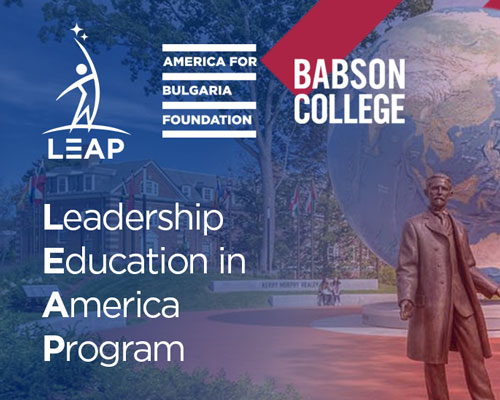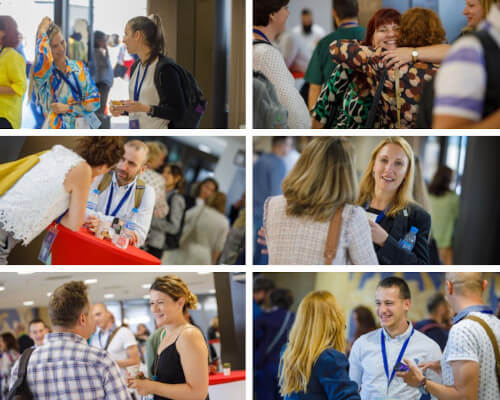 Businesses are well aware that doing good can improve their bottom line and help them build their brand. But how do you know whether your efforts are effective?
Businesses are well aware that doing good can improve their bottom line and help them build their brand. But how do you know whether your efforts are effective?
1. Tie your CSR strategy to your business goals
You need not squirm about it: the best CSR programs advance your business goals. After all, when you do good, it is only fair that it should help you make money. So, in selecting a cause to support, brainstorm ideas that are based on your business development objectives and company offerings. This will ensure your CSR plan is an easy sell with both financial backers and employees. Tying CSR to profits will also secure sustainable funding for your charitable work.
CSR is part and parcel of Canadian mining company Dundee Precious Metals’ business strategy in Bulgaria. The company knows that investing in improving local communities is worthwhile: it makes people happy to live and work in a place, which, at the end of the day, is a good employee retention policy. For its work in the Bulgarian town of Krumovgrad, where it supports the local hospital and helps repair roads and plumbing, in 2018 the Bulgarian Donors Forum named it best local donor. Dundee’s support for the Srednogorie region, its other area of operation in Bulgaria, totals 1.7 million levs and is the highest financial contribution by a company in 2017.
2. Focus your efforts and go in for the long haul
Commit effort and funding to one or two worthy causes instead of spreading out your support over many different initiatives. This will allow you to build your credibility in an area, and as your brand becomes associated with a cause over time, you will get ample opportunity for brand building and development as well.
For years, Avon Cosmetics Bulgaria has supported initiatives to spread awareness of breast cancer issues and prevention. Its “With Love for Life” campaign, a three-time recipient of the Bulgarian Donors Forum’s best donor’s program award, is a good example of a long-term CSR strategy.
3. Find the right partners
If you are serious about tackling an issue, consider partnering with others. And don’t worry that they’ll steal your thunder: take partnering as an opportunity to show off your leadership skills. You need not look far for support either—the best potential partners may be your customers and other people who benefit from your products and services. Partnerships with NGOs or government may be decisive, particularly if you are addressing a complex social problem such as domestic violence.
The Bulgarian Donors Forum’s best partnership award aims to encourage just such collaboration between business and nonprofits in identifying solutions to social issues. This year’s prize for collaboration went to Avon Cosmetics Bulgaria for its efforts to create a 24-hour hotline for victims of domestic violence in partnership with the Alliance against Gender-Based Violence.
The America for Bulgaria Foundation and the Donors Forum are excellent resources for businesses seeking to become change-makers. Over the past ten years, ABF has invested more than 200 million US dollars in 850 initiatives run by Bulgarian NGOs. The Forum works with companies, individuals, and nonprofits to promote volunteering and charitable giving in Bulgaria. The two organizations will readily share their connections and experience with businesses set on making CSR work.
4. Get your employees on board
Companies are about people, and your employees will be the ones to carry out your CSR activities. So, get their input! Employees who feel their opinion matters will be much happier working for you. What is more, employees who identify with their company’s CSR goals will apply themselves more fully to their accomplishment.
SAP Labs Bulgaria keeps its workforce motivated by enlisting its help in making IT and science education accessible to every child in the country. In 2017, its employees spent 1,120 workdays mentoring kids and young adults in programming and the sciences, an effort worth 190,000 dollars. SAP Labs received the 2018 Bulgarian Donors Forum award for best corporate volunteering program.
5. Measure your results
Start out by defining what success is—that is, the improvements in your community or society at large that you want to see in the future. Next, determine what resources are available and chart out the course you will pursue to get there. What outcomes do you expect to see six months, one year, and two years from now? When the time comes, take a good, honest look at the work you have done and ask yourself: Does it match my estimates?
Read more about why monitoring and evaluation are your allies.
6. Be honest and transparent
If something didn’t work, be honest about it. People won’t judge you for trying and doing poorly, but they will turn their backs on you for trying to hide a misstep or, worse, attempting to spin it as success. Be open about getting it right and generously share your success stories. After all, doing good deserves attention. Or as ABF Executive Director Desislava Taliokova told guests at the Bulgarian Donors Forum award ceremony on November 22:
“Many media outlets suggest that we should not name donors because this is advertising in disguise. I believe donors need to be spoken about loud and proud. As you know, some of the most important cultural and educational institutions in Bulgaria were established with the help of philanthropists. How will we bring up a new generation of donors if we do not dare mention their names? Or are we always going to look to the past for reasons to be proud?”
Here’s the ABF guide to building your own winning CSR strategy.
All recipients of Bulgarian Donors Forum awards in 2018 are listed HERE. (in Bulgarian only).
You can support the work of the Bulgarian Donors Forum via its GlobalGiving page.

